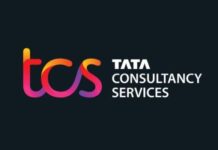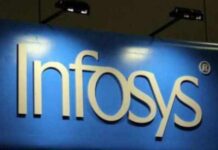
Employee engagement for Generation Z (Gen Z) is a nuanced concept that may differ from previous generations.
To understand what it is not for Gen Z, we need to consider their unique characteristics, expectations, and preferences in the workplace. Here are several misconceptions or aspects that may not align with Gen Z’s view of employee engagement:
- Job Stability as the Primary Goal: It is a common misconception that Gen Z prioritizes job stability and long-term commitment to a single employer. While some individuals may value job security, many Gen Z workers are more open to job-hopping and exploring various career opportunities. Employee engagement for Gen Z is not solely about job security; it’s about personal growth, learning experiences, and meaningful work.
- Traditional Hierarchies and Authoritarian Leadership: Gen Z tends to appreciate more inclusive, collaborative, and flat organizational structures. They are less likely to thrive in environments characterized by strict hierarchies and authoritarian leadership. Employee engagement for Gen Z is not about conforming to traditional power structures; it’s about having a voice, feeling heard, and contributing to decision-making.
- Lack of Technological Integration: Gen Z grew up with technology, and they often expect seamless integration of digital tools and platforms in the workplace. Employee engagement for Gen Z is not about resisting technology or maintaining outdated systems; it’s about leveraging technology to enhance productivity, communication, and remote work capabilities.
- Irrelevant Work Assignments: Gen Z employees are more likely to disengage if they find their work assignments uninteresting, irrelevant, or lacking a sense of purpose. Employee engagement for Gen Z is not about mindless tasks or repetitive work; it’s about providing opportunities for them to work on projects that align with their interests and values.
- Minimal Opportunities for Growth and Learning: Gen Z values continuous learning and professional development. Employee engagement for Gen Z is not about stagnant career paths or limited opportunities for growth; it’s about offering access to training, mentorship, and a clear path to advancement.
- Strict Dress Codes and Formalities: Gen Z tends to favor more casual and flexible work environments. Employee engagement for Gen Z is not about rigid dress codes or strict formalities; it’s about allowing them to express their individuality and creativity in how they dress and work.
- Lack of Diversity and Inclusion: Gen Z places a high value on diversity and inclusion in the workplace. Employee engagement for Gen Z is not about homogeneous workforces or ignoring issues related to discrimination or bias. It’s about fostering diverse, inclusive, and equitable workplaces where everyone feels valued and respected.
- Isolation and Lack of Collaboration: Gen Z often values collaboration and teamwork. Employee engagement for Gen Z is not about isolating employees in individual roles or limiting opportunities for collaboration; it’s about creating a supportive and inclusive culture that encourages teamwork and the exchange of ideas.
- Static Communication Channels: Gen Z is accustomed to instant messaging, social media, and digital communication tools. Employee engagement for Gen Z is not about relying solely on traditional, static communication channels; it’s about adopting dynamic and responsive communication methods that align with their digital preferences.
Employee engagement for Gen Z is not a one-size-fits-all concept. It’s about understanding their unique expectations, values, and preferences in the workplace and tailoring engagement strategies to meet their needs.
Gen Z seeks workplaces that offer personal growth, meaningful work, inclusivity, and opportunities to leverage technology, among other factors.








